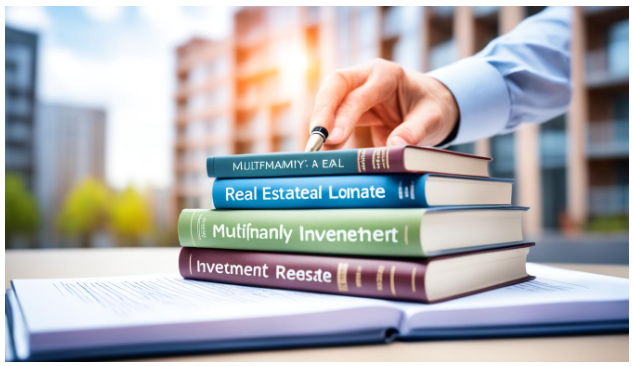Tenant Retention Strategies for Multifamily Property Owners
Tenant retention is a key factor in maximizing the profitability of multifamily properties. High tenant turnover can lead to costly vacancies, increased maintenance expenses, and the need to constantly market and fill units. On the other hand, retaining long-term tenants helps stabilize cash flow, reduce operating costs, and maintain a positive property reputation. In this blog, we’ll explore effective tenant retention strategies for multifamily property owners to help minimize turnover and build long-term relationships with tenants.
1. The Importance of Tenant Retention
Before diving into specific strategies, it’s important to understand why tenant retention is critical to the success of your multifamily property investment.
- Cost of Tenant Turnover: Every time a tenant moves out, property owners incur expenses related to cleaning, repairs, marketing, and leasing. These costs can quickly add up, especially if you have frequent turnovers. By retaining tenants, you reduce the need for these expenses and maintain consistent rental income.
- Vacancy Losses: Vacant units generate no income, which can significantly impact your cash flow. The longer a unit remains vacant, the more revenue you lose. Retaining tenants minimizes the time and effort spent on filling empty units.
- Stable Community: Long-term tenants contribute to a more stable and cohesive community. A property with consistent, satisfied tenants is more likely to attract new residents through positive word-of-mouth and online reviews.
2. Communication is Key
One of the most effective ways to improve tenant retention is by maintaining open and clear communication with your tenants.
- Be Responsive: Tenants expect timely responses to their inquiries and maintenance requests. Make it a priority to respond to emails, phone calls, and maintenance requests within 24-48 hours. This shows that you value their concerns and are committed to maintaining a high level of service.
- Conduct Regular Check-Ins: Schedule periodic check-ins with your tenants to discuss any concerns they may have. This proactive approach can help you address small issues before they become larger problems that could lead to a tenant leaving.
- Use Technology: Implement online portals or property management apps that allow tenants to easily submit maintenance requests, pay rent, and communicate with management. These tools make it more convenient for tenants to get in touch with you and feel supported throughout their lease term.
3. Create a Positive Tenant Experience
Creating a positive tenant experience goes beyond just providing a place to live. It involves making your property a comfortable and enjoyable place for tenants to call home.
- First Impressions Matter: The move-in experience sets the tone for the entire lease term. Ensure that units are clean, well-maintained, and ready for new tenants when they move in. Provide clear instructions for move-in logistics, such as parking and utilities setup.
- Welcome Packages: Consider offering a welcome package for new tenants, which could include basic household items, local information, or a gift card to a nearby restaurant. A thoughtful gesture like this can make tenants feel appreciated and more likely to stay long-term.
- Maintain Common Areas: Well-maintained common areas, such as hallways, lobbies, and outdoor spaces, create a pleasant environment for tenants. Regularly clean and update these areas to keep them looking fresh and inviting.
- Offer Tenant Events: Hosting community events, such as barbecues, holiday parties, or fitness classes, can help build a sense of community among tenants. Tenants who feel connected to their neighbors are more likely to renew their leases.
4. Address Maintenance Issues Promptly
Timely maintenance is one of the most important factors in tenant satisfaction. Tenants expect their homes to be safe, functional, and well-maintained.
- Have a Reliable Maintenance Team: Ensure that you have a reliable and skilled maintenance team in place to handle repairs and routine maintenance. Whether you manage the property yourself or use a property management company, it’s essential that maintenance issues are addressed promptly.
- Preventative Maintenance: Implement a preventative maintenance schedule to catch issues before they become major problems. Regular inspections of HVAC systems, plumbing, electrical systems, and appliances can help prevent costly repairs and keep tenants happy.
- Emergency Repairs: Be prepared to handle emergency repairs, such as water leaks or heating failures, quickly. Providing tenants with a 24/7 emergency contact number for urgent repairs shows that you are committed to their safety and comfort.
5. Incentivize Lease Renewals
Encouraging tenants to renew their leases is key to reducing turnover. Offering incentives can make tenants more likely to stay for another year or longer.
- Offer Rent Discounts: Consider offering a small rent discount for tenants who sign long-term leases or renew early. This can make tenants feel valued and reduce the financial burden of moving to a new place.
- Upgrade Incentives: If tenants are hesitant to renew because they want a more updated unit, offer to make small upgrades in exchange for a lease renewal. This could include new appliances, fresh paint, or upgraded fixtures.
- Flexible Lease Terms: Offer flexible lease terms that meet the tenant’s needs. For example, if a tenant is unsure about committing to a full year, consider offering a six-month lease renewal to give them more flexibility.
6. Build Strong Tenant Relationships
Building strong relationships with tenants can significantly increase the likelihood of lease renewals.
- Be Personable: Take the time to get to know your tenants on a personal level. Whether it’s remembering their names or asking about their day, small gestures can go a long way in building rapport and making tenants feel more connected to their living environment.
- Be Fair and Transparent: Fair and transparent management practices are key to maintaining positive tenant relationships. Make sure tenants understand lease terms, rent increases, and property policies. Being honest and fair in your dealings will help build trust with your tenants.
- Reward Long-Term Tenants: Show appreciation for tenants who have been with you for several years. Consider offering a free rent day, a small gift, or a rent freeze for loyal, long-term tenants.
7. Competitive Rent Pricing
While rent increases are often necessary to keep up with market trends and property expenses, it’s important to keep rent pricing competitive to avoid losing tenants to nearby properties.
- Conduct a Market Analysis: Regularly conduct a market analysis to compare your property’s rent prices with similar properties in the area. If your rents are significantly higher than comparable properties, tenants may be more likely to move when their lease expires.
- Implement Gradual Increases: If you need to raise rent, consider implementing gradual increases rather than a sudden, large jump. Tenants are more likely to accept small, predictable rent increases, especially if they feel the increase is justified by the property’s condition and amenities.
8. Handle Tenant Complaints Effectively
How you handle tenant complaints can have a significant impact on retention. Addressing issues quickly and professionally helps build trust and ensures that small problems don’t escalate into major frustrations.
- Listen and Empathize: When tenants bring a complaint to your attention, listen carefully and empathize with their concerns. Acknowledge the issue and assure the tenant that you will take action to resolve it.
- Follow Through: Once you’ve promised to address a complaint, follow through in a timely manner. If a repair or resolution takes longer than expected, keep the tenant informed of the progress. Communication is key to managing expectations and maintaining tenant satisfaction.
Conclusion: Effective Tenant Retention Strategies for Multifamily Success
Tenant retention is essential for maximizing profitability and reducing operating costs in multifamily properties. By focusing on clear communication, addressing maintenance issues promptly, creating a positive living experience, and offering incentives for lease renewals, property owners can reduce turnover and build long-term relationships with tenants. With these strategies in place, you can maintain high occupancy rates and ensure the long-term success of your multifamily investment.



